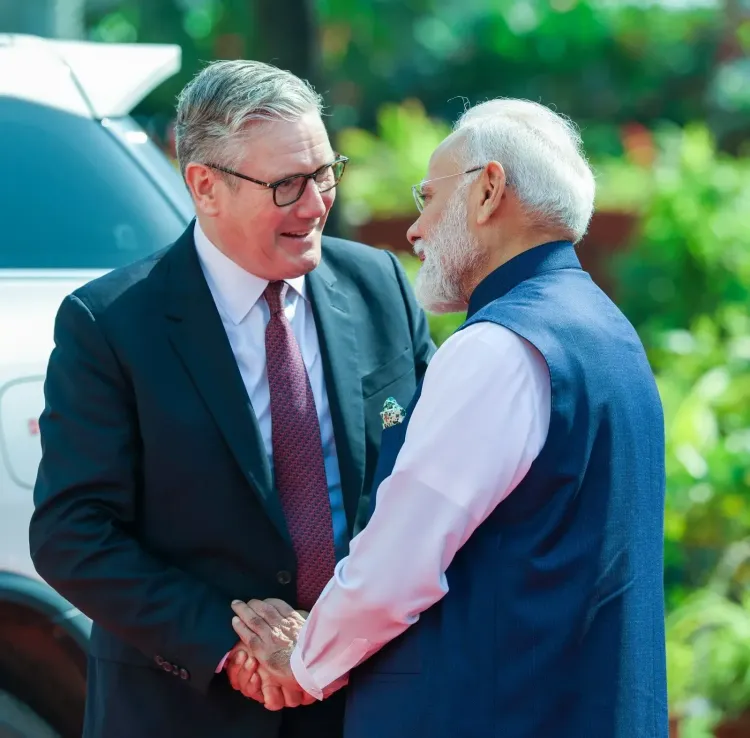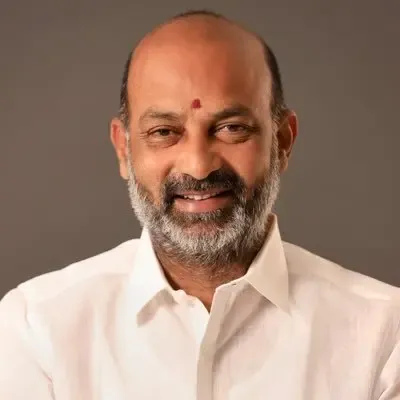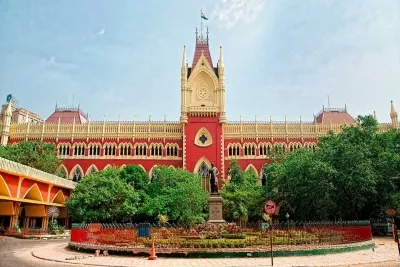How are PM Modi and Keir Starmer Strengthening India-UK Economic Relations?

Synopsis
Key Takeaways
- PM Modi and Keir Starmer discussed enhancing bilateral trade and economic relations.
- The establishment of an India-UK Connectivity and Innovation Centre is a key outcome.
- Joint investments in climate technology and health sectors were announced.
- A comprehensive economic and trade agreement (CETA) is expected to create new job opportunities.
- Collaboration on critical minerals and biotechnology was emphasized.
Mumbai, Oct 9 (NationPress) Prime Minister Narendra Modi and his counterpart from the UK, Keir Starmer, engaged in significant discussions on Thursday aimed at further enhancing trade and economic relationships, which are projected to generate additional employment opportunities and facilitate increased investment between the two nations.
The nations have decided to create an India-UK Connectivity and Innovation Centre and a joint AI Centre, along with establishing a critical minerals industry guild to strengthen supply chains and advocate for green technologies, as noted in a joint statement following the meeting.
Furthermore, they unveiled plans for joint investments in a climate technology startup fund and initiated new partnerships in health and renewable energy, including an offshore wind task force and a health research collaboration, among other initiatives.
These agreements are anticipated to accelerate bilateral trade expansion, assist in the establishment of UK university branches in India, and enhance cooperation in utilizing cutting-edge technologies to promote inclusive economic growth and bolster national security.
“The transformative India-UK CETA (Comprehensive Economic and Trade Agreement) will generate new job prospects for our youth, enhance trade, and benefit both our industries and consumers. In this context, PM Starmer and I deliberated on trade connections and economic relations between our countries for the future,” PM Modi remarked after the discussions.
Both leaders expressed eagerness for the swift ratification of the CETA to unlock its advantages.
Starmer highlighted that the primary goal of his visit was to maximize the potential of the trade agreement, which is expected to come into effect within a year.
“As I depart India tonight, I anticipate securing significant new investments that will generate thousands of high-skilled jobs in future-oriented sectors,” he stated.
Both leaders reaffirmed their dedication to enhancing connectivity and fostering collaboration in the aviation sector, noting ongoing discussions about renewing the India-UK Air Services Agreement and other aviation-related matters. This opens up avenues for closer cooperation within the aerospace sector, according to the joint statement.
The Prime Ministers of India and the UK reiterated their joint commitment to leveraging frontier technologies to promote inclusive economic growth, bolster national security, and shape the future of global innovation.
Building upon the pioneering Technology Security Initiative (TSI), both leaders acknowledged the tangible advancements made across critical and emerging technologies, including telecommunications, critical minerals, AI, and health technology, the statement indicated.
Under the TSI, the leaders expressed satisfaction with the establishment of the India-UK Connectivity and Innovation Centre, a collaborative hub focused on developing an AI-native network for 6G, Non-Terrestrial Networks (NTNs), and cybersecurity for telecommunications, with an initial funding of at least £24 million.
The India-UK Joint Centre for AI, dedicated to advancing responsible and trustworthy applications of AI across health, climate, fintech, and engineering biology, is also being established.
Additionally, it has been agreed that the UK-India Critical Minerals Processing and Downstream Collaboration Guild will forge solid partnerships to reinforce and diversify critical mineral supply chains, fostering investment and growth in both countries.
They also announced the second phase of the UK-India Critical Minerals Supply Chain Observatory, aimed at broadening mineral coverage, further integrating advanced technologies, unlocking new bilateral investment opportunities, and establishing a new satellite campus at IIT-ISM Dhanbad.
India and the UK continue to collaborate on advancing biotechnology, with strategic agreements signed between institutions such as the Centre for Process Innovation (CPI) in the UK and the Biotechnology Research and Innovation Council (BRIC) in India, along with partnerships involving the Henry Royce Institute (HRI) and the Indian Institute of Science (IISc), and Oxford Nanopore Technologies (ONT) with BRIC – Centre for DNA Fingerprinting and Diagnostics (BRIC-CDFD), aiming to deliver transformative results in biomanufacturing, 3D bioprinting, and genomics, as highlighted in the joint statement.









